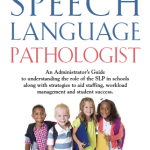Parent Information
This page is designed for parents who have questions about the child’s speech and language development. Please visit my other pages too, especially Your Middle Schooler even if your child is years away from the tween years. Please contact me if you have any specific questions or need information in any specific area of speech and language development.
Teresa
Shattered
Schools I feel do their best to make their schools secure but honestly most fall very short. In most schools there is a sign that says visitor have to check in with the office. Some schools do lock their front doors and you have to be buzzed in. Visitors are often buzzed in without verbal confirmation of who they are by untrained and very busy office staff looking at a 6×6 screen. It’s also very easy to piggyback into the school if there is a person in front of you. In no school that I have ever worked in was there a locked door between the office and the rest of the school. Basically once someone is in a school they could go anywhere.
Newer schools might have a better set up with cameras and newer security systems but older schools just were not designed anticipating this type of concern. Schools were designed to make it easy for staff and students to access the office.
When I first started teaching all we ever had to practice is fire drills. Today that’s a no brainer, you line up the kids and take them outside. Lockdown procedures began for me about 5-6 years ago. I took this seriously but also knew that they fell far short of really being able to protect children. To initiate lock down an announcement is made. Hopefully, a teacher is actually able to hear and attend to the announcement. I could also see situations where the announcement could not get sent out. We were asked to use our own cell phones incase of emergency, then told to slip either a green or red card outside our locked door to tell them if we were ok or not. To me that was like saying “here we are.” One day we had a power outage and the principal asked me to go around and ask the teachers to turn on their cell phones so they could be contacted, well over half either had no power or left them in their car. Another school I worked at in an urban area as recently as 2 years ago didn’t even know what I was talking about when I asked about their lock down procedures. Even something as simple as everyone having a good functioning room key to lock doors is often a complicated procedure in school systems. Security seems to depend greatly on the beliefs and efforts of the school system and local law enforcement.
Sadly it is doubtful that anyone other than law enforcement could have stopped this monster from getting into the school and killing these children. If he didn’t have access to guns he would have found another way. In the days to come we might find out why he did this or if he was showing any behavior that could have indicated he was capable of this. Was this a planned or spontaneous act. Is it even going to matter unless we are able to identify these individuals and intervene. Is that even possible?
Every school system in America is thinking about how they should improve their school security this morning. I’m almost sure that in the long run little will be done to make schools safer. Schools will talk about it at every school committee meeting, some will hire consultants, a few will put new or updated procedures in place, a select few will actually make the expensive changes needed that will actually be somewhat effective. Part of the problem with this is that most communities do not want to believe something this tragic can happen there. Especially communities where many don’t even feel they have to lock their doors. Administrators with no security training or never having even experienced living in areas where crime is an issue are not equipped to make security decisions or plans. Law enforcement needs to step in and design the security for school buildings. In many situations I am not confident that local law enforcement will even take it seriously enough.
I can’t even imagine the grief Newtown Ct. is feeling today. This is no doubt a parents, teachers, first responders, community and even nations worse nightmare come true. My condolences and prayers go out to everyone directly effected by this horrible tragedy. I am so sorry this happened.
Topic for December
During the month of December The School Speech Therapist will be focusing on consulting and co-teaching. Any ideas, questions, concerns or thoughts on this topic I’d love to hear from you.
I will continue to follow up on the surveys around entrance and exit criteria and vocabulary testing. Just waiting for the data to come in. So if you haven had a chance to take a couple of quick surveys I’d really appreciate it.
https://theschoolspeechtherapist.com/ppvtevt-vs-rowpvteowpvt/
When does a Middle School Child need a Speech and Language Evaluation-reprint
Hi Everyone.
I have to apologize for being so lax about posting. I had the grandest plans for this month, writing about the speech and language assessment process. Well to make excuses, I can tell you that work has exploded. I work part time for a school system doing evaluations and they’ve decided to move up their time line on all of the evaluations. I actually think it’s a great idea but it shoves more work into my limited time. And lets not forget those pesky report write up that mostly take place at home. I also picked up another wonderful part time job at a vocational high school which will be a new experience for me. They too have me testing to meet deadlines.
Since I love evaluating I don’t mind being busy but that leaves little time for other ventures. Today I’m going to recycle a post from last January. It has an evaluation theme so it fits my plan. When does a Middle School Child need a Speech and Language Evaluation
It’s still not too late to participate in my survey on speech and language assessment. Right now I am putting together a report on the data gathered and I can always include more. Assessment Survey
Hope everyone enjoys their weekend. Around here it’s the calm before the storm and we will be securing lawn chairs this afternoon.
Teresa
Assessing Children Adopted from Abroad
I came across this article on ASHAsphere and wanted to share. The article Relationship and Communication Development in Children Adopted From Abroad by Deborah HWA-Froelich focuses on the uniqued differences in overall language development in children who are adopted from other countries.
I’ve worked with children who have come from other countries who speak both languages in the home and those that acquired english early on after listening and possibly speaking (or beginning to speak) in another language. As Ms. Froelich points out, the foreign adopted children experience a disruption in language development. I know from experienced that these children, when brought to my attention, are clearly more language disabled than the typical ESL/ELL child.
ESL/ELL children have their own set of issues. I see a lot of splinter skills in their vocabulary and comprehension especially if the second language was introduced early, before their native language was firmly developed. However, most typical ESL/ELL students improve and compensate without intensive services. ESL/ELL students usually demonstrate typical pragmatic skill development and interact well in their environment.
We all know that children who are exposed to some type of neglect and abuse are going to have difficulty developing in some if not many ways. This is an added layer, to the development of a child from a foreign adoption that must be considered as part of their profile.
School’s need to be cautious and thorough when assessing the needs of a child from a foreign adoption. Teams will almost always initially assume it is ELL/ESL issue without a complete evaluation. When this happens precious months or years are wasted. I believe the two points made by Ms Froelich, probable abuse/neglect with foreign adopted children (or at least the lack of nurturing at at early age) and the complete disruption in language development are two very valid reasons to conduct a complete Core evaluation on a struggling student with history of foreign adoption.
English is more than likely the dominate language at that point so evaluations should be conducted in English. Look at the child as a language disabled student when planning what test measures to use. If the students are very young when initially tested do not assume that language/learning development will progress as naturally as native speakers. Overall development of foreign adopted children needs to be monitored closely throughout the school years. We know that children who have difficulty acquiring language as young children often experience difficulty down the road with development of higher order language.
When you assess these students do not be surprised at if you see atypical test results. Scores will not fall into the typical patterns you expect, scores may be quite low, scattered and errors will appear throughout many areas of language. Do your best to interrupt the scores and develop a plan. Keep in mind that no matter how enriching their environment is now, these children have missed out and do not have the experiences to draw from to aid consistent development.
Evaluations are Key to Improving Special Education Programs
Many years ago I started a new job in s school district that was rumored to have some problems in their special education department. I was able to confirm the rumors almost immediately. While going through the caseload files I noticed that there were a high number of students who had gone out for their speech and language evaluation. Comparing dates I noticed that the outside speech and language evaluations were either part of the initial request or requested after a speech and language was completed through the school.
Now we have all had this happen. A parent or the team isn’t happy with our findings. This happens when we find problem and when we actually rule out problems. We’re never going to make everyone happy 100% of the time. However, something was different with the pattern I was seeing. There were just too many outside evaluations.
Reading the evaluations, it was easy to see why this happened. The evaluations done by the school speech language pathologist were void or any narrative or analysis. Scores were reported, ranges were given and summaries were sparse. Most of the school speech and language evaluations were 2 pages at best. The quality was poor and no supplemental testing was ever given. I wondered if the therapist was really that bad, never learned the right way to evaluate or just didn’t have time to do the job properly. I wondered how these reports were presented to the parents. Was the therapist able to go into more specific detail in the meetings? The IEP’s didn’t reflect this so I doubted that parents or teachers were given any more information. Basically the evaluations I read raised more questions than they answered.
Parents talk, even in large districts. It only takes one parent or team member to say something negative about a report for that opinion to spread. Pair that with a general lack of confidence in the school’s special education program and you can see how easily a situation like this may occurred. (I’ve seen poor evaluations from clinics and hospitals but somehow it doesn’t seem to sully their reputation as much.)
First Step
With the help of a dedicated staff and a strong team leader this particular school was able to turn around the perceptions of most of the parents. The first step in this process was to improve testing in all areas.
- The school administration supported more testing and meeting time, they were at the point where they realized it was cost effective.
- The team took the time to look over many report styles and picked the best formats and pieces from each one to help develop testing templates.
- Our program manager developed a heading for our written evaluations which immediately gave a more professional and coordinated look to our testing.
- While testing students we collaborated with the other team members. The school psychologist often asked me to dig a little deeper in some areas. I always went to both the regular and the special education teachers to ask them what their biggest concerns were and if there was anything specific they wanted me to try and rule out.
Because of our efforts, we not only looked more professional and coordinated, we were more professional and coordinated. Parents were no longer confused when they left the meeting because everyone had their own different opinions. We did such a good job of coordinating our efforts that we rarely missed anything and our testing almost always dovetailed.
Meetings
The meetings are another key factor to completing good evaluations. When reviewing testing, marathon meetings are a must. It takes a long time to review 3 or more evaluations thoroughly and to develop a good IEP. When schools take the time to answer parent concerns, parents view the schools as caring and personal. Sometimes we actually split the meetings into two if the reports were long and involved, developing the IEP a day or two later (if we had the time legally). This school system was dedicated to improving their evaluation process and hired substitutes so the teachers could stay for most if not all of the meeting. Nothing tells a parent you care less about their kid than leaving a meeting in the middle of it.
With some coordinated team effort and administrative support we were able to turn this particular situation around, keep testing in house and keep costs down. Our testing and our reports became more thorough and looked more professional than some of the previous outside evaluations. In some cases our testing was even better because we often knew the student prior to testing, we were often able to include formal and informal observation, we were able to gather first hand information from parents and teachers to direct testing and we were able to see the kids in a familiar setting over a longer period of time.
Results
Because we collaborated informally ahead of time
- Our recommendations, accommodations and service delivery were truly team decisions.
- We were able to look at all factors such as student need, teacher concern’s, parent’s concerns, other school demands, who would be responsible for accommodations and how to fit the needed services into the students day while developing the IEP.
- Our IEP’s were some of the best and most individual specific I had ever seen.
The outside evaluations often contained recommendations and accommodations. However, they were often generic or grandiose. Suggested service delivery from outside evaluations did not take the schedule, the child’s overall needs or other educational demands into consideration.
I was very proud of the work we did in that school district over the three year period that this particular team worked together. I learned a lot. Watching parents perceptions change and confidence in the school grow was especially rewarding. We knew we had a lot to do with that. Our team leader problem solved and we implemented simple and very common sense changes that made us look good. Best of all the students ended up with an effective IEP. With teachers involved in the process they had an easier time following through on classroom accommodations and modifications. The teachers also knew they could come to us for support.
Did we keep 100% of our testing in house? No of course not but our percentage of in house evaluations shifted significantly with very few evaluations in any discipline completed outside of school. With simple and professional changes we were able to improve the way we did CORE evaluations without a mandate or law. Our team leader took the talents and strengths of smart, caring professionals and gave us the time and tools to improve (not change) our evaluation process. Bottom line we were effective, we looked good and felt more professional.
The School Speech Therapist Book Review
The Death and Life of the Great American School System
Book Review
I’m almost finished listening to the book The Death and Life of the Great American School System by Diane Ravitch. All I can say is no wonder the United States finds it’s self in a quandary about what to do to improve all schools. Ms. Ravitch is an Educational Historian who speaks from experience, significant research and some first hand observation. Her book goes back several decades and chronicles the many many attempts to improve schools. It is amazing how many methods have been tried and I might add failed. Reformers, educators (those involved in school reform), administrators and even statisticians have made education so complicated and convoluted over the years it’s no wonder that most reform attempts fail.
While reading this book I get the sense that most reformers have no understanding of children, how they learn, how challenging other aspects of their lives can be or even human nature. Most reform measures seem very myopic in their goals and never look down the road as to the child’s ability to apply learning to life. Reform ideas seem to appear willy nilly without research, studies, development or revision. If a reform idea doesn’t work after awhile one of two things seem to happen, they move on to another reform or the players move on and the original reform fades away. I’ve actually worked in districts who have jumped from reform idea to reform idea. What I noticed in these schools are students with glaring splinter skills and a general lack of maturity in their academic abilities and confidence.
What is most interesting about this book is that Ms. Ravitch was originally a supporter of reform until she realized most of reforms didn’t worked, reform promoted cheating, the goals set were impossible and that state mandated testing produced little reliable data. Ms. Ravitch, also points out that much of the blame, when reforms fail to produce improved test scores falls on to the teachers and principals. She sites several reasons why the sole blame should not fall on teachers and principals alone. My impression is that school reformers claim to fame is to place the blame on teachers and unions when their ideas don’t work. I found it very curious that even most recent reform ideas don’t seem to mention much about developing a good strong curriculum for teachers to work from. I would think that would be the biggest part of the whole equation.
This is a long complicated book and much of the time the information just blended together. This isn’t to fault Ms. Ravitch’s writing, it just emphasizes how disorganized school reform is. Her book makes hundreds of valid points around the mistakes made in reforming education. It is a fabulous book for discussion points. The Death and Life of the American School System details the history of education across the nation not just what has happened in your school district or state. I think most readers will be surprised at some of the absurd situations and ideas that have developed over the years in education. There also appears to be a general lack of ownership and clear documentation when reform ideas fail.
Teacher’s are almost powerless in fighting school reform and their opinions and experience is rarely (if ever) solicited. For years, I’ve wondered why school administrators, superintendents and even school boards don’t question reforms being forced on school systems. Especially systems that have high functioning schools. Struggling schools tend to go through these reform programs quickly, dumping them when they can’t report an immediate success rather than tweaking them to fit their needs. Frequently, I see and hear about school districts spinning what they know are going to be ineffective approaches, to parents and the media, always touting that they’re implementing the next great thing in education.
Everyone wants to see the data. Ms. Ravitch points out that data doesn’t show everything and that often the wrong data is collected and compared. I know that there have been programs introduced in schools that have been widely used for years. I’ve asked the consultants of these programs to show me the data and they usually can’t. I believe it’s because there isn’t any. Yet when presenting to a group, consultants will always say, “The data shows….” I learned a long time ago, from one of my grad school professors in fact, to question educational data.
So pick up this book read, listen and highlight. Learning the history of reform, lack of organization and lack of success made me realize that I am not the only one who is concerned that education has taken a wrong turn. This book should be required reading for every school committee member, administrator, superintendent, mayor, town counsel, finance committees and anyone else who has responsibility for planning children’s education.
Numbers vs. Need
Kudos to anyone who has a working schedule in place. Now the question is can your schedule be implemented with quality and consistency. Talking with colleagues in several states, I noted for some, caseload management is a huge issue. Almost all full time therapists have big numbers. Many report 60 to 90 students on a caseload. Some of these therapists have speech language assistants and some don’t. A good assistant can be somewhat helpful but the ultimate responsibility for the student’s programming falls on the therapists shoulders.
Over the years I’ve been lucky to work on occasion with principals, team leaders and even special education directors who for the most part were aware of caseload numbers and sometimes understood need differences. I’ve learned over the years to advocate for myself in terms of the time needed to adequately service my caseload. Sometimes the administration listened and sometimes there was no money to listen.
When assessing the needs of any special needs caseload wether it be the special education teachers caseload, the speech therapists caseload, the school psychologist caseload, the team facilitator’s caseload and even classroom placement, the students needs not just the number of students needs to be looked at. As speech therapists, we know that 60 students with developmental articulation needs is a lot easier to manage than 60 language learning disabled kids. Our caseloads are never that straight forward either. Within a group of 60 students, a typical speech language pathologist will service a variety of disabilities ranging from simple articulation errors, to language learning disabled, to low cognitive, to specific disabilities such as Aspergers and autism, to physical disabilities effecting communication and everything in between.
If a therapist has 60 students on a caseload they might miss 60-180 hours of therapy just attending annual meetings. Thats 10-20 days of therapy and at least 6 meetings a month. We can write IEP’s that involve articulation and development language delay in our sleep but children who have more complex needs, their IEP’s require more time and thought. At least a fourth if not more of the students on the caseload will require a 3 year re-evaluation. Comprehensive speech and language evaluations take anywhere from 6-12 hours to complete dependent on the students needs and if you include write up time. That’s another 90 hours or 15 days of therapy. it is almost impossible to build in time for meetings and testing when caseload numbers are big. My point is the larger the caseload numbers the more therapy will be cancelled due to other tasks because most of those tasks have to meet mandated deadlines. If the student is a more involved student all those housekeeping tasks take more time too.
Administrators, please look at caseload need when determining how many therapists you need to service your school or district. Ask your therapists what their caseload needs are not just how many students they have. Look at the schedule and see if it is even physically possible to schedule students and allow for adequate meeting and paperwork time. If a school schedule does not accommodate special education students and their needs it is your responsibility to initiate change. Speech therapists often need more paperwork time because almost every student we see has unique and significant needs. Canceling therapy is unacceptable as a solution.
Parents, at your team meeting, ask outright how many students there are on the therapists caseload. Parents don’t hesitate to question class size and caseload size is no different. If you don’t like hearing that the therapist has to service over 60 students in a week. question them as to how the therapist will manage to give your child what they need.
Therapists, advocate for yourself and speak up. If your caseload so challenging, numbers are too high and need is too great, that the children are not getting what they need and you have to cancel therapy on a regular basis, your caseload is too difficult to manage. You are not a failure if you have impossible parameters to work with. Make a list of the issues and present it to your principal, special education director and team facilitator. If you don’t educate them on caseload needs they will never understand. Even if it doesn’t help your immediate situation it may change they way they look at things in the future. Point out that an assistant is not always the answer since you have to supervise them and most are not qualified to work with more involved students.
Not all caseloads are created equal. Therapists and teachers know this. Caseload management is an issue that is talked about a lot among therapists and teachers. We know the problems but nothing will be done about it until we are able to educate our administrators on need vs. numbers.
Carly’s Voice: Breaking Through Autism
A cousin of mine who happens to have a grandson with autism mentioned this segment that aired on “The Doctors” today. I found it extremely interesting from a speech and language perspective . Also interesting from a life perspective. Take the time to watch the videos, very enlightening. I sometimes put down technology when it comes to developing language but in this case technology gave Carly Fleischmann a way to have a voice in the world.
Carly’s Fleischmann on the Doctors
I’m planning to read (listen) to her and her Dad’s book soon.
I couldn’t pass this one up. Even the students who speak well are often misunderstood at school. Imagine what our students could learn sitting next to a friendly social talker.
(Sorry I can’t figure out how to delete the picture so you are seeing double. I tried)
“Brain Training Programs” Any Experience?
Can anyone comment on their experience using brain training programs such as Fast ForWord, Lumosity, Attengo? I have a follower considering using this type of programming with her 8th grade son who has ADHD – inattentive type and difficulty with language comprehension. They would love to hear your experience, if you thought it made a difference, if it is appropriate for older middle school students and is it worth the cost? The student doesn’t qualify for services at school but has a 504 plan and could possibly use in-school time for this kind of training. Are these types of programs effective and what type of student generally benefits the most?
Thanks











